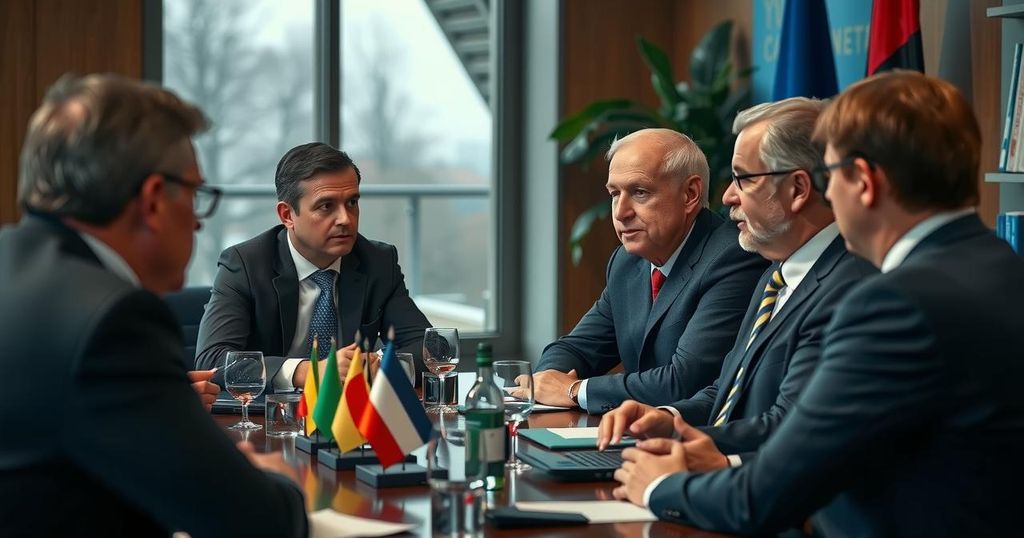Czech Prime Minister Calls for EU to Rethink Climate Goals Amid Global Uncertainty

Czech Prime Minister Petr Fiala urged the EU to reassess its climate goals if global allies are lacking, particularly in light of U.S. President Donald Trump’s potential withdrawal from the Paris Agreement. He emphasized the need for realistic targets, evaluation of past commitments, and international collaboration to effectively combat climate change.
Czech Prime Minister Petr Fiala has raised concerns regarding the European Union’s climate objectives amid speculation about potential U.S. withdrawal from the Paris Agreement under President Donald Trump’s leadership. As the U.S. appears inclined to pursue policies that could undermine global climate objectives, Mr. Fiala emphasized the necessity for the EU to reassess its climate strategy in the absence of strong global allies, including the U.S. and China. In difficult international circumstances, Mr. Fiala articulated that Europe cannot shoulder the burden of climate change alone and should not set new targets without evaluating the achievement of existing commitments. He acknowledged that while the EU has contributed significantly to international climate initiatives, a reevaluation of both strategy and policy may be imperative to ensure realistic and achievable goals. During his COP29 address, Mr. Fiala advocated for the necessity of maintaining ambitious yet realistic climate targets, cautioning against overly optimistic goals that are prone to failure. He called for a consensus that reflects feasible objectives, noting that successful climate action requires collective effort from global partners. Additionally, he voiced support for the adoption of nuclear energy as a viable option for countries seeking to advance their energy sustainability.
The European Union has been a leader in global climate initiatives, committing to ambitious objectives to combat climate change. However, the dynamics of international support, particularly from major players like the United States and China, significantly influence these efforts. With changes in U.S. leadership and a possible retreat from international agreements, EU nations are reevaluating their strategies to ensure continued progress in climate goals. The call for realistic targets and collaborative global efforts underscores the complexities involved in addressing climate change effectively.
In conclusion, Prime Minister Petr Fiala’s remarks highlight the challenges the European Union faces in its climate agenda, especially in light of shifting political landscapes in key allied nations like the United States. The need for a pragmatic approach that prioritizes realistic ambitions while encouraging international collaboration is essential for the EU as it navigates the future of its climate policies. The emphasis on nuclear energy as part of a decarbonization strategy may also signal a shift in energy policy priorities amidst these discussions.
Original Source: www.euractiv.com








